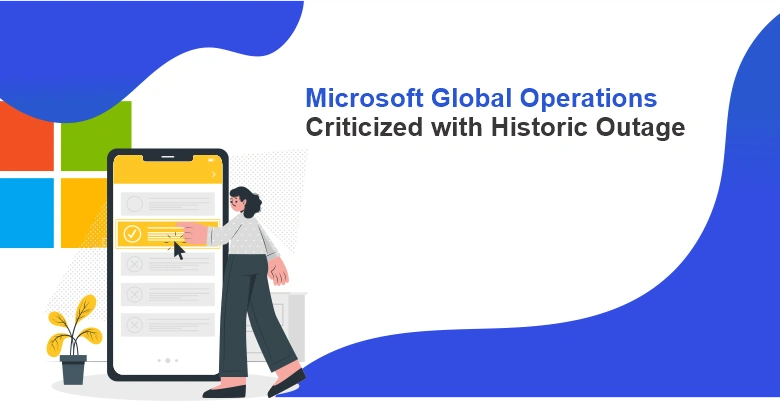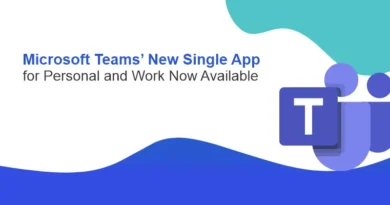Microsoft Global Operations Criticized with Historic Outage
A cascading computer outage grounded planes, stymied hospitals, and disrupted critical public services. This exposed the global economy’s deep dependence on Microsoft. Regulators and lawmakers expressed alarm over the power concentrated in one firm. The outage highlighted the risks of Microsoft’s expansive reach, affecting governments, businesses and critical infrastructure.
The system failure had a global impact. Credit card systems went down in Australia. Airlines in India issued handwritten plane tickets. Courts in the U.S. delayed hearings, including one in Harvey Weinstein’s sex crimes case. The public sector also felt the impact. The Social Security Administration closed local offices through the weekend. The Federal Communications Commission reported 911 service disruptions, forcing some dispatchers to use analogue phone systems.
Trending on Techlopedia: Best Calendar Application for iPhone in 2024
The outages were traced to a defective update from the cybersecurity company CrowdStrike. This update was shipped to Windows systems globally, triggering mass outages. In a blog post on Saturday, Microsoft estimated the update affected 8.5 million devices. This amounts to less than 1 percent of computers running Windows.
The episode has resurfaced concerns about Microsoft’s control over global systems. It is raising questions about the risks to federal agencies and businesses. There is growing debate on whether the power of one of the world’s most sophisticated political operators should be curtailed.
People Also Read: 10 “Best” AI SEO Tools (2024) | Quick-Guide
“These incidents reveal how concentration can create fragile systems,” said Lina Khan, Federal Trade Commission Chair. Khan, a Democrat, mentioned this in a Friday post on X. Her agency is investigating consolidation among cloud computing services.
“The impact of today’s outages was defined by the reach of CrowdStrike, not Microsoft,” said spokeswoman Kate Frischmann.
Microsoft’s email, cloud storage, and video conferencing products are staples in workplaces nationwide. The company is also a major supplier to the federal government. However, prominent security lapses and mounting regulatory concerns are testing its relationships in Washington.
Microsoft’s software in government IT systems came under scrutiny earlier this year. Major hacks exposed federal officials’ emails, prompting lawmakers to call in the company’s president, Brad Smith, to testify. A report by the Cyber Safety Review Board found a “cascade of avoidable errors” and a security culture “that requires an overhaul.”
CrowdStrike CEO George Kurtz stated on Friday that the outages were “not a security or cyber incident.” He added that the company is “working with all impacted customers to ensure systems are back up.” Kurtz emphasized that they aim to help customers deliver the services their users rely on.
Microsoft CEO Satya Nadella said on Friday that the company is “working closely with CrowdStrike and across the industry.” He added that they are providing customers with technical guidance and support to safely bring their systems back online.
The outage has sparked calls for the federal government to diversify its pool of vendors. This could benefit Microsoft’s competitors.
George Rakis, executive director of NextGen Competition, said the outage is due to a software monopoly. He accused Microsoft of creating a single point of failure for the global economy. Rakis called for Microsoft to be broken up to allow more competition.
Spence Purnell, director of technology policy at the Reason Foundation, noted that government officials often complain about tech monopolies. However, he said they ironically support Microsoft’s hold on government contracting through vendor lock-in.
Rep. William Timmons (R-S.C.), a member of the House Oversight Committee, called for immediate hearings on the incident. He stated on X that it “lays bare the multiple choke points in our IT and cyber infrastructure.”
Microsoft’s regulatory troubles are increasing worldwide as it aggressively pushes into new technologies, including artificial intelligence. Federal agencies recently cleared the FTC to investigate its relationship with OpenAI. Regulators in Europe and the United Kingdom are also examining this relationship. These actions signal a shift for the company, which avoided much of the “techlash” during the Trump presidency and the early years of the Biden administration.
Microsoft has extensive lobbying and public-relations resources to manage the outage’s aftermath. Over the past three decades, it has built a sophisticated public policy operation, learning from its antitrust battles with the U.S. government in the 1990s and early 2000s.
Sen. Eric Schmitt (R-Mo.) recently questioned the Pentagon’s plans to invest more in Microsoft products. On Friday, he wrote to the Defense Department, warning that “consolidation and dependence on one provider can be catastrophic” to IT systems.
Defense Department spokesperson Jessica Anderson said the agency is monitoring its networks for possible impacts. However, she declined to comment on their status for security reasons.
The FTC was also affected by the outage, with employees working to resolve issues on Friday.
Lina Khan, the FTC chair, has been vocal about dismantling the power of tech giants. Under her leadership, the FTC brought an antitrust case against Amazon and challenged mergers, including Microsoft’s purchase of Activision. Microsoft ultimately won in court, and the deal closed last year.
Recommended for You: What is a Query Computer? A Guide by Techlopedia
Khan recently warned on “The Daily Show” that some companies have become so powerful that they suffer few consequences when they harm consumers.
An FTC official, speaking anonymously, said, “We now see the consequences of prioritizing ‘efficiency.’ An errant update can shut off the global economy for a day, or a hack can stop millions from filling prescriptions for weeks.” The official added, “Dominant firms often don’t care because their customers have no alternatives for better service.”
Source: Microsoft’s global sprawl comes under fire after historic outage



